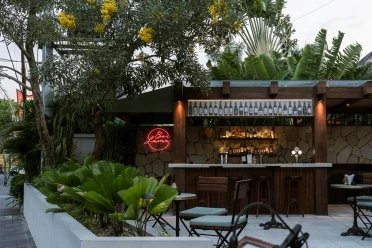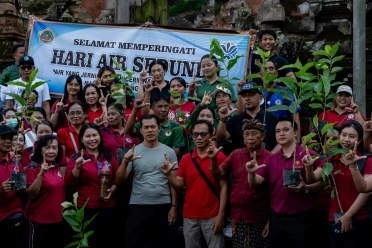With over 17 years of experience spanning Indian, European, and Oriental cuisines, Chef Bhaumik’s passion for food was sparked at a young age through her travels and family influences. Her career has been shaped by overcoming challenges, from being a woman in a male-dominated kitchen to pioneering her own ventures. In this pleasant interview session, Chef Moumita shares her unique approach to cooking, her expertise in molecular gastronomy and Ayurvedic cuisine, and what excites her most about leading the culinary team at Queen’s Tandoor. Get ready for a deep dive into the mind of an aspiring chef who continues to innovate while staying grounded in the roots of her craft!
Learning and Innovating the Vibrant Indian Cuisine: Interview with Chef Moumita Bhaumik of Queen's Tandoor Seminyak
With over 17 years of culinary experience across Indian, European, and Oriental cuisines, what first sparked your passion for the culinary arts and inspired your career as a chef?
Growing up in a family that loved to travel, I had the opportunity to explore various cuisines, some of which were a bit risky but fascinating. My father’s encouragement to try new foods opened my eyes to the world of cooking. By middle school, I knew I wanted to pursue a career in hotel management and cooking, with the full support of my father. I trained with prestigious brands like Taj Hotels, where I learned from some of the best chefs, including several female chefs who inspired me. Cooking soon became more than a profession; it became my world. I also discovered that food is a powerful tool to heal and nourish, which motivated me to continue in this field.
"I believe inspiration can come from unexpected sources—a particular color, texture, or even a sound can spark an idea for a new dish."
Your impressive journey includes roles at renowned hotels like The Lalit Group and The Taj, as well as co-founding Panchmishali and Desi Videshi Bistro. What were some pivotal moments or challenges in your career that have shaped your unique approach to cooking?
One of my biggest challenges was being a woman in a male-dominated kitchen, particularly in India, where cooking was seen as a male profession. Overcoming this mental and physical struggle required a lot of determination. I was fortunate to have mentors who helped me navigate this and emphasized that being a chef is an art, like being a doctor, not just a cook. After losing my father, I started my own ventures, Panchmishali and Desi Videshi Bistro, blending Indian flavors with European techniques. Balancing work and family after becoming a mother presented new challenges, but my family’s support kept me going. Over time, I also earned an MBA in tourism, became a professor, and even earned a doctorate. The journey is continuous, and I thrive on learning.
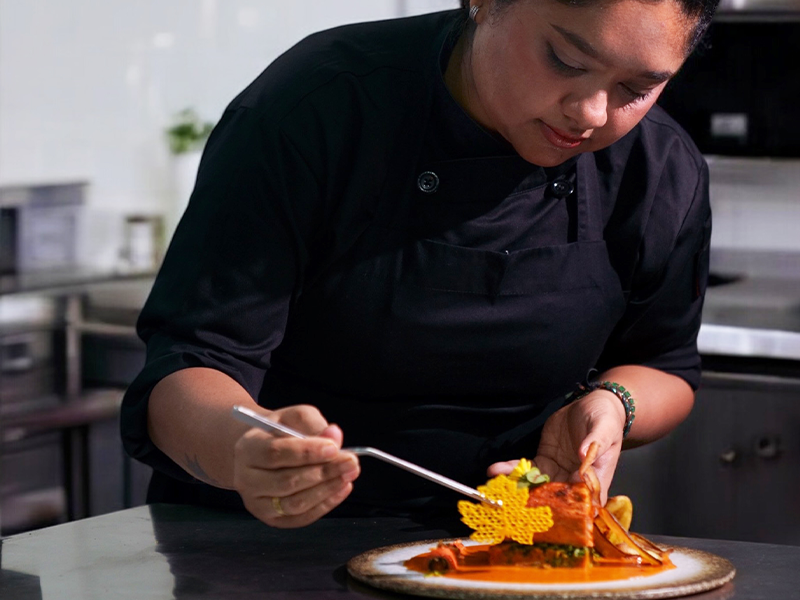
You have a specialty in both molecular gastronomy and Ayurvedic cuisine. How do these seemingly contrasting approaches complement each other, and how do you incorporate them into your dishes at Queen’s Tandoor Seminyak?
I’ve always been intrigued by molecular gastronomy’s visual impact, and while studying it, I realized that it’s most effective when used sparingly—small touches like mint foam or a jelly elevate a dish without overpowering it. On the other hand, Ayurvedic cuisine focuses on balance and the idea that food should nourish both the body and mind. It emphasizes understanding the properties of ingredients and aligning them with your body’s needs. I incorporate both principles at Queen’s Tandoor by adding modern twists to traditional dishes while ensuring the food promotes health and well-being, staying true to Ayurveda’s roots.
"Cooking soon became more than a profession; it became my world. I also discovered that food is a powerful tool to heal and nourish, which motivated me to continue in this field."
What excites you most about leading the culinary team at Queen’s Tandoor Seminyak, and what kind of dining experience can guests expect under your leadership?
I’m excited to lead the culinary team at Queen’s Tandoor because it allows me to innovate while maintaining the authenticity of Indian cuisine. We focus on providing a multi-sensory dining experience that goes beyond taste—paying attention to presentation, aroma, and texture. We work collaboratively as a team, which helps us stay ahead of trends while ensuring that classic dishes are executed flawlessly. Guests can expect bold, balanced flavors and a dining experience that feels both familiar and refreshing, with a strong emphasis on seasonality and fresh ingredients.
You are known for blending traditional Indian flavors with modern culinary techniques. Can you share a sneak peek into one or two signature dishes you've crafted for Queen’s Tandoor Bali that highlight this innovative fusion?
One signature dish is our Indian-inspired Paneer ravioli. We use delicate pasta dough filled with spiced vegetables and paneer, combining Italian and Indian elements. The ravioli is served with spinach sauce, creating a contrast of flavors. Another standout dish is the sous-vide chicken galantine, where we use traditional tandoori spices and a modern sous-vide technique to cook the chicken to perfect tenderness. It’s paired with a spinach khichdi, blending Indian comfort food with fine dining elements. These dishes reflect my commitment to honoring traditional Indian cuisine while incorporating innovative techniques.
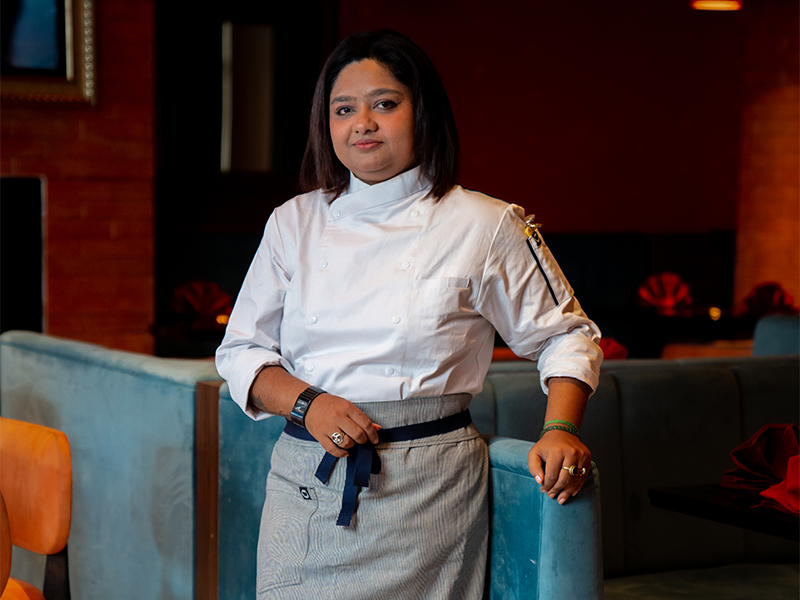
Outside the kitchen, how do you unwind and find inspiration for your next creative dish? Do you have hobbies or personal interests that contribute to your culinary ideas?
Travel plays a huge role in inspiring my creations. Exploring different cultures and regional cuisines helps me see food from new perspectives. Visiting local markets, interacting with vendors, and tasting unique dishes inspire me to bring fresh ideas to the table. I also enjoy attending art exhibitions and spending time in nature, which helps me recharge creatively. I believe inspiration can come from unexpected sources—a particular color, texture, or even a sound can spark an idea for a new dish.
With such a diverse background in global cuisines, what are your thoughts on how the culinary world is evolving, and where do you see the future of Indian cuisine heading in the global culinary scene?
Indian cuisine is evolving rapidly, with chefs like Vikas Khanna, Vinit Bhatia, and Gagan Anand reinterpreting traditional dishes through modern techniques and global ingredients. This blend of tradition and innovation is shaping the future of Indian cuisine. Additionally, chefs like Manjeet Singh Gill are leading efforts to promote sustainable ingredients like millets, which are gaining international recognition. As global awareness of alternative grains grows, Indian cuisine’s roots in ancient grains like millets are becoming a sophisticated, innovative trend that will continue to thrive on the global culinary stage.
"Don’t just be a cook; be a chef. Mastering the basics and constantly improving is essential."
As a mentor at NIPS School of Hotel Management, what key lessons do you hope to instill in aspiring chefs, and how do you encourage creativity and innovation in the next generation?
That’s a very interesting question! At NIPS, I emphasize the importance of dedication, continuous learning, and humility. Many aspiring chefs are drawn to the idea of fame, but I stress that success in this field requires hard work and perseverance. I share the advice my mentor gave me: "Don’t just be a cook; be a chef." Mastering the basics and constantly improving is essential. One of the most valuable lessons I learned was an exercise where we were blindfolded to identify different types of salt, which taught me the importance of detail and focus. I encourage my students to stay humble, be confident in their craft, and be open to learning from everyone. This attitude not only leads to personal success but also earns respect in the industry.



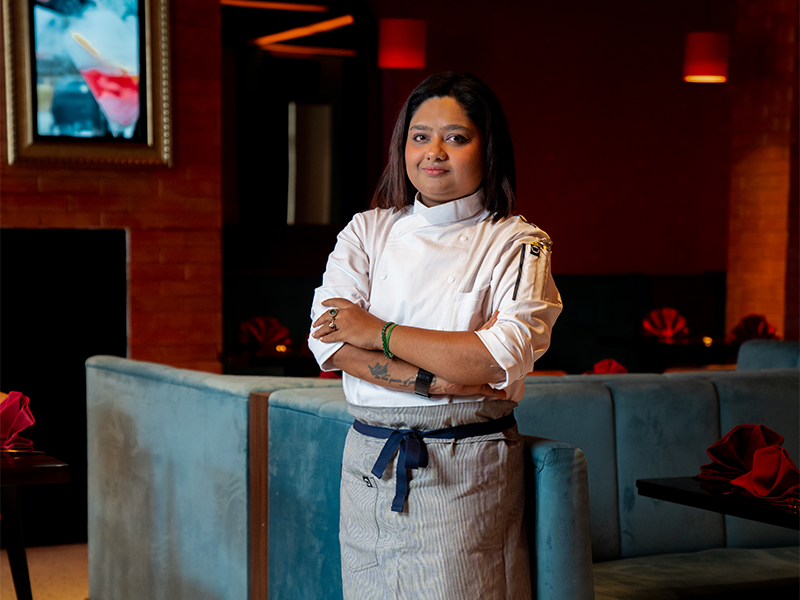
 Billy Bagus
Billy Bagus
 Nov 11, 2024
Nov 11, 2024
